2024 JHU Science Diplomacy Summit
Experts and scholars from 20+ countries discussed how science can foster international cooperation.
By working across differences and international divides, science diplomats work to improve lives and international relations through peaceful scientific engagement on some of the most pressing topics of our day–including climate change, artificial intelligence, space exploration, sustainability, and quantum physics.
Based at the Hopkins Bloomberg Center in Washington, D.C., the Johns Hopkins Science Diplomacy Hub was launched in 2023 and aspires to foster the growth of a global network of science diplomats and create durable partnerships to deliver evidence-driven policy solutions.
Throughout the year, the Hopkins Science Diplomacy Hub hosts a range of convenings that bring together stakeholders from across the globe, including government officials, researchers, academics, practitioners, and industry leaders. The convenings culminate in the Johns Hopkins Science Diplomacy Summit.
The next Johns Hopkins Science Diplomacy Summit will take place on April 14-15, 2025.
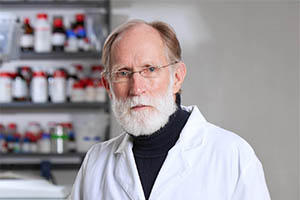
Bloomberg Distinguished Professor
2003 Nobel Laureate in Chemistry
Johns Hopkins Science Diplomacy Hub Co-Director
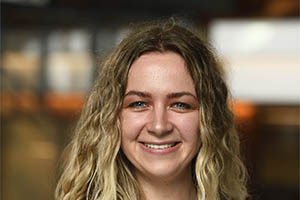
Ph.D. Candidate in Chemistry
Johns Hopkins Science Diplomacy Hub Co-Director
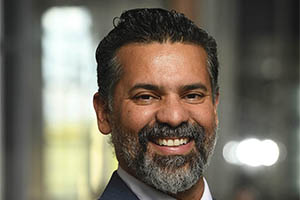
Senior Director of Global Sustainability and Development
National Academies of Sciences, Engineering, and Medicine (NASEM)
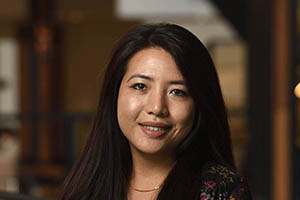
Senior Executive
National Council of University Research Administrators (NCURA)
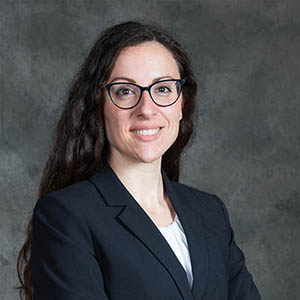
Program Director | Division of Astronomical Sciences
National Science Foundation (NSF)
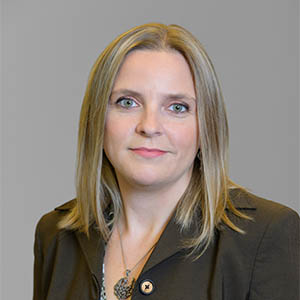
Program Director
Office of Drug Development Partnership Programs
National Center for Advancing Translational Sciences (NCATS)
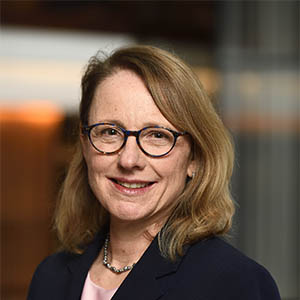
Head
Office of the Director | Office of International Science and Engineering (OISE)
National Science Foundation (NSF)
The Science Meets Regions series facilitates bilateral and multilateral cooperation by connecting leading scientists and diplomats from participating countries to share and advance priorities in science, technology, and innovation. The series serves as a platform for scientists to contribute their expertise and offer evidence-based recommendations to address pressing challenges facing each country and their surrounding geographical region.
Series highlights:
The tiniest particles in the universe could transform sectors ranging from health care to defense, as scientists use principals beyond “classical” physical limitations to develop new materials and enhance computing power, secure communication, sensing, and more. Multiple countries have recognized such transformative opportunities, resulting in increased international competition in this promising new area of science and technology.
To help prepare for the Quantum Age, the Science Diplomacy Hub hosts the annual Global Quantum Strategies Overview convening, featuring flash talks by distinguished key players in the private sector, academia, and government to discuss the latest relating to QIST topics, including:
In 2024, the sequel to the annual Global Quantum Strategies Overview convening was the “Narrowing the Quantum Divide: Future Talent & Workforce Development”, an event where ambassadors of countries including Switzerland and Finland, in addition to distinguished speakers from other countries, shared updates on key advancements in quantum talent development pipelines in their respective countries.
From weather forecasting to water resource management, to agriculture, telecommunications and beyond, the strategic importance of space underscores the need for effective international cooperation based on diplomacy, international treaties, and other global agreements. The Science Diplomacy Hub hosts key players in the space science diplomacy field including astronauts, diplomats, and innovators to share their experiences.
The effects of climate change vary dramatically around the globe, but solving the crisis will only happen when all nations, big and small, work together to forge and adopt common solutions. This collaboration is necessary at the diplomatic level as well as through researchers across scientific fields convening and sharing data-driven and evidence-based solutions on a range of issues, from food safety and security to health and transportation.
Agriculture: Intensive farming practices and excessive use of synthetic fertilizers and pesticides have led to an increased focus on the topic of sustainable agriculture to ensure a sustainable, safe, and healthy food supply.
Artificial Intelligence: As artificial intelligence becomes increasingly integrated into our daily lives and critical systems, there is a pressing need for sustainable AI practices. These include the responsible and ethical development, deployment, and usage of AI that considers the long-term well-being of both society and the environment.
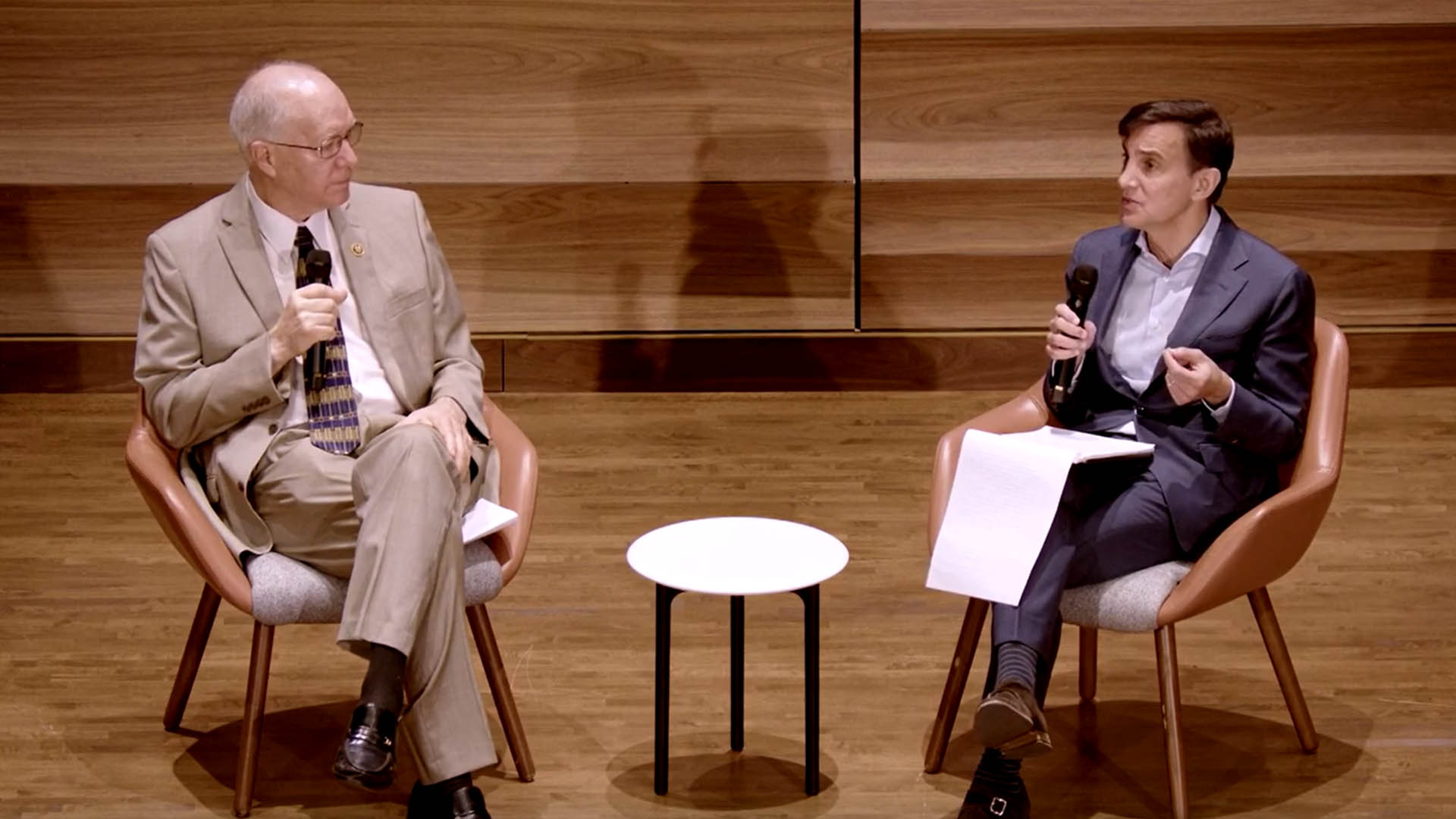
Experts and scholars from 20+ countries discussed how science can foster international cooperation.
chris macrae
ARTIFICIAL INTELLIGENCE https://washingtondc.jhu.edu/research-policy/artificial-intelligence/
Johns Hopkins experts in artificial intelligence span the interdisciplinary spectrum—from engineering to medicine, neuroscience to transportation and beyond. They work to ensure that the research and development of the rapidly evolving technology progresses ethically so that governments can formulate policies that advance the best interests of humanity.
In the summer of 2023, Johns Hopkins University announced a major new investment in data science and the exploratio..., one that will significantly strengthen the university’s capabilities to harness emerging applications, opportunities, and challenges presented by the explosion of available data and the rapid rise of accessible AI. The Johns Hopkins Data Science and AI Institute provides a nexus for experts from diverse disciplines who bring data science, machine learning, and AI to bear over a wide range of fields, including national security, societal safety, materials design, public health, clinical care, neuroscience, space systems, and public policy.
JOHNS HOPKINS AI EXPERTS
K.T. RAMESH
Alonzo G. Decker Jr. Professor of Science and Engineering
LEARN MOREFellow, Hopkins Extreme Materials Institute
RAMA CHELLAPPA
Bloomberg Distinguished Professor
LEARN MORERITU AGARWAL
Wm. Polk Carey Distinguished Professor of Information Systems and Health
LEARN MORESUCHI SARIA
John C. Malone Associate Professor of computer science
LEARN MOREALEXANDER SZALAY
Bloomberg Distinguished Professor
LEARN MOREDirector Of Institute for Data Intensive Engineering and Science
TINGLONG DAI
Professor of Operations Management and Business Analytics
LEARN MOREMARK DREDZE
John C. Malone Associate Professor of Computer Science
LEARN MORERIGOBERTO HERNANDEZ
Gompf Family Professor of Chemistry
LEARN MOREa longer listing of about top 50 jhu people connecting AI and mix of disciplines is here
also an early review of ai was feb 2023 hosted by alexis battle co-chair of ai + data sciencewith Chellappa-
This video;s cast:-
Tuesday, February 14, 2023 Topics discussed include:
With the following Johns Hopkins experts:
Dec 23, 2024